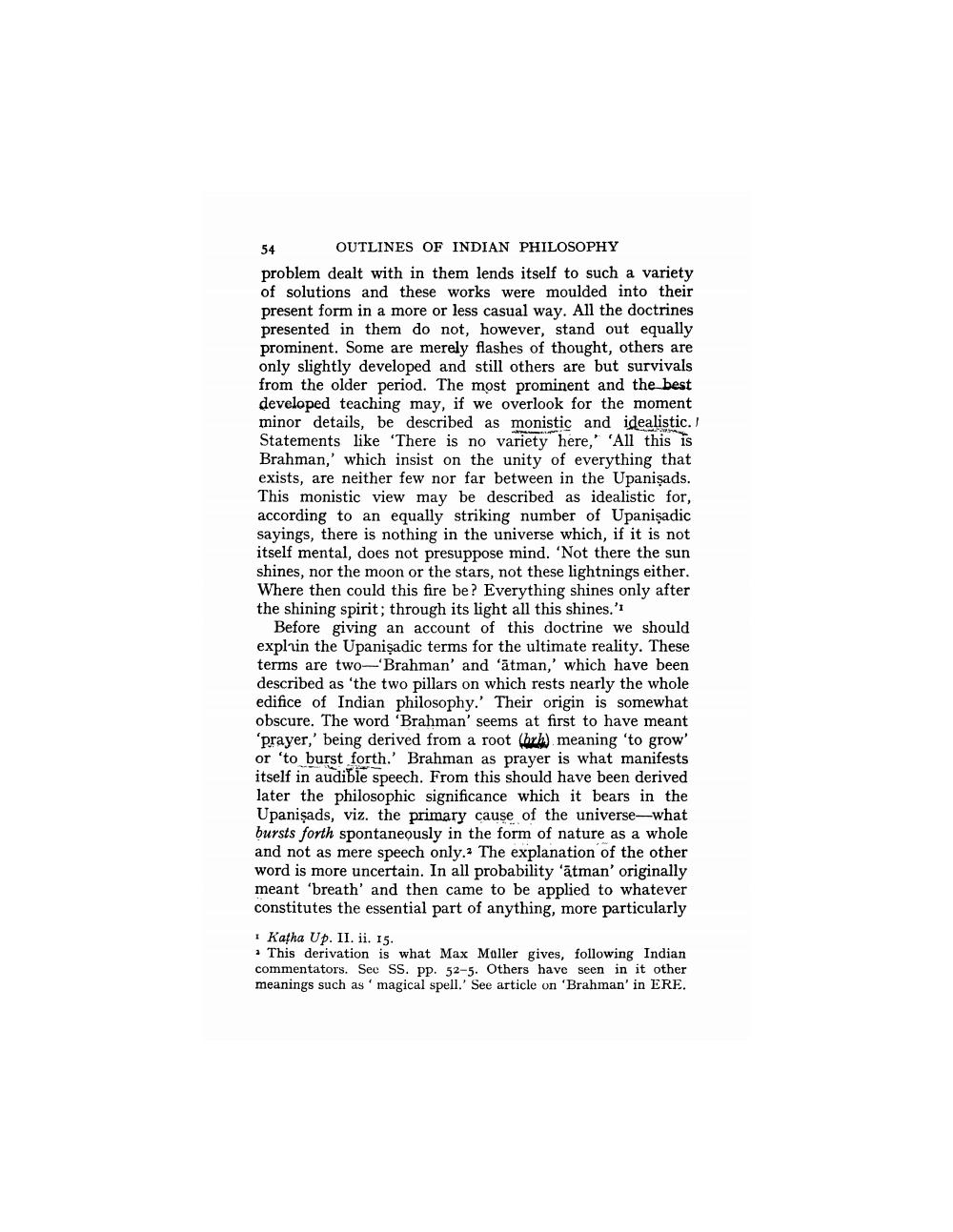________________
54
OUTLINES OF INDIAN PHILOSOPHY
problem dealt with in them lends itself to such a variety of solutions and these works were moulded into their present form in a more or less casual way. All the doctrines presented in them do not, however, stand out equally prominent. Some are merely flashes of thought, others are only slightly developed and still others are but survivals from the older period. The most prominent and the best developed teaching may, if we overlook for the moment minor details, be described as monistic and idealistic. Statements like 'There is no variety here,' 'All this is Brahman,' which insist on the unity of everything that exists, are neither few nor far between in the Upanisads. This monistic view may be described as idealistic for, according to an equally striking number of Upanisadic sayings, there is nothing in the universe which, if it is not itself mental, does not presuppose mind. 'Not there the sun shines, nor the moon or the stars, not these lightnings either. Where then could this fire be? Everything shines only after the shining spirit; through its light all this shines.'1
Before giving an account of this doctrine we should explain the Upanisadic terms for the ultimate reality. These terms are two-'Brahman' and 'atman,' which have been described as 'the two pillars on which rests nearly the whole edifice of Indian philosophy.' Their origin is somewhat obscure. The word 'Brahman' seems at first to have meant 'prayer,' being derived from a root (hr) meaning 'to grow' or 'to burst forth.' Brahman as prayer is what manifests itself in audible speech. From this should have been derived later the philosophic significance which it bears in the Upanisads, viz. the primary cause of the universe-what bursts forth spontaneously in the form of nature as a whole and not as mere speech only. The explanation of the other word is more uncertain. In all probability 'atman' originally meant 'breath' and then came to be applied to whatever constitutes the essential part of anything, more particularly
1 Katha Up. II. ii. 15.
This derivation is what Max Muller gives, following Indian commentators. See SS. pp. 52-5. Others have seen in it other meanings such as magical spell.' See article on 'Brahman' in ERE.




